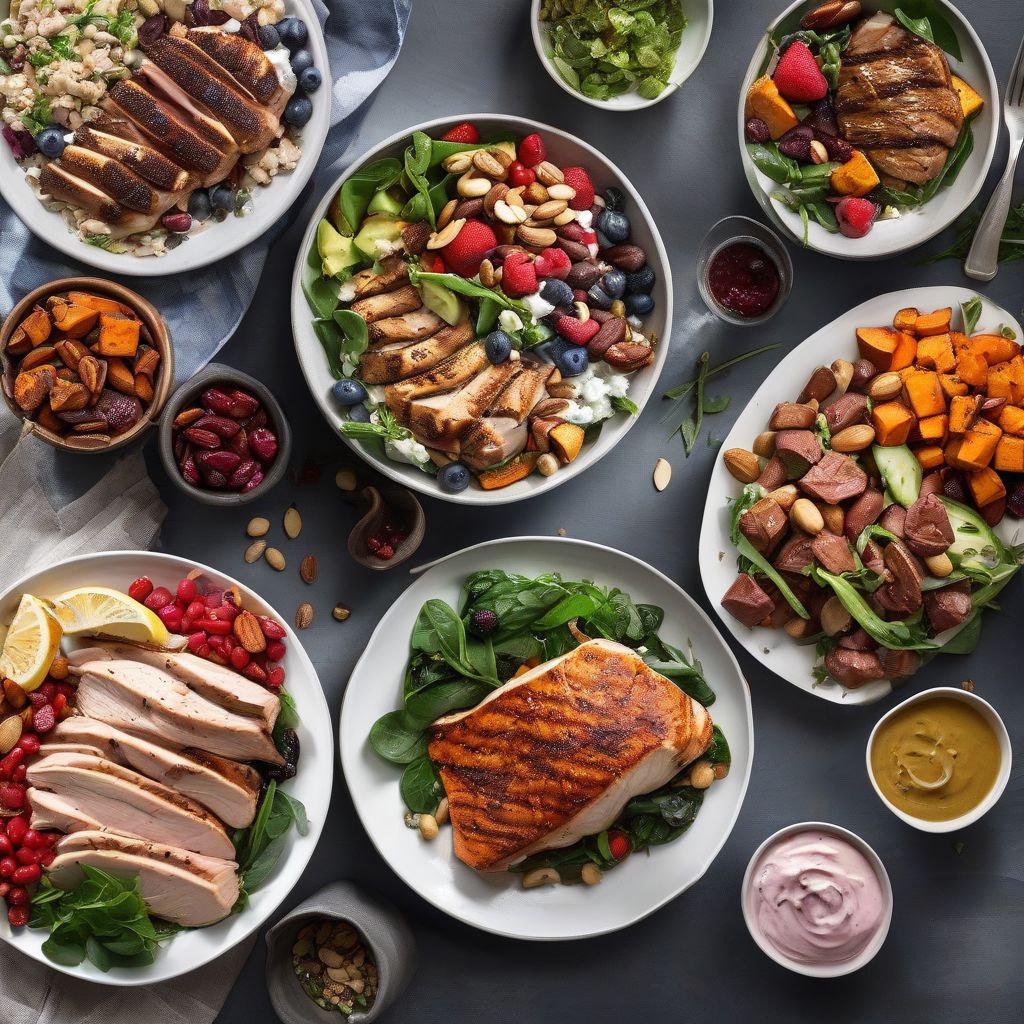Ever feel that satisfying soreness after a killer workout? That’s your muscles telling you they’ve been challenged and are now ready to rebuild, stronger than before. But to maximize that growth, you need the right fuel. That’s where high-protein meals come in. They’re the building blocks for muscle repair and growth, helping you recover faster and achieve your fitness goals. So, what are the best high-protein meals for muscle recovery? Let’s dive in!
Understanding the Importance of Protein for Muscle Recovery
After intense exercise, your muscle fibers experience microscopic tears. Protein provides the amino acids needed to repair this damage and stimulate muscle protein synthesis, the process that builds new muscle. Adequate protein intake is crucial not only for muscle growth but also for reducing soreness and promoting faster recovery. Think of protein as the bricks and mortar for rebuilding your muscles after a workout.
How Much Protein Do You Need?
The recommended protein intake for athletes and those engaged in regular resistance training is generally higher than for sedentary individuals. While general guidelines suggest 0.8 grams of protein per kilogram of body weight for the average adult, those focused on muscle building often benefit from 1.2 to 2.0 grams per kilogram. However, individual needs vary, so consulting with a registered dietitian or sports nutritionist can help determine the optimal protein intake for your specific goals and activity level.
The Best High-Protein Meals for Muscle Recovery
Here are some delicious and easy-to-prepare high-protein meals that can help you maximize your muscle recovery:
1. Grilled Chicken Salad with Quinoa
Grilled chicken breast is a lean protein powerhouse, providing all the essential amino acids. Pairing it with quinoa, a complete protein source, adds a boost of complex carbohydrates for sustained energy. Load up your salad with colorful vegetables like spinach, bell peppers, and tomatoes for added vitamins and antioxidants.
2. Salmon with Roasted Sweet Potatoes
Salmon is rich in both protein and omega-3 fatty acids, which have anti-inflammatory properties that can aid in muscle recovery. Roasted sweet potatoes offer a healthy dose of carbohydrates and essential nutrients.
3. Lean Beef Stir-Fry
Lean beef is another excellent source of protein and iron, which is crucial for oxygen transport to muscles. Stir-frying with a variety of vegetables ensures a nutrient-rich and satisfying meal.
4. Turkey and Black Bean Chili
This hearty chili is packed with protein from lean ground turkey and black beans. It’s also a great source of fiber, which supports digestive health.
5. Greek Yogurt with Berries and Nuts
Greek yogurt is a high-protein breakfast or snack option that’s also rich in calcium. Adding berries and nuts provides antioxidants, healthy fats, and added protein.
Optimizing Your Protein Intake
Timing is Key: Post-Workout Nutrition
Consuming protein within 30-60 minutes after your workout is often recommended to maximize muscle protein synthesis. This “anabolic window” is the period when your muscles are most receptive to nutrients.
Spreading Protein Throughout the Day
While post-workout nutrition is important, it’s equally crucial to distribute your protein intake evenly throughout the day. Aim to include protein with every meal and snack to ensure a consistent supply of amino acids for muscle repair and growth.
Tips for Meal Preparation
Preparing your meals in advance can save time and ensure you always have healthy, high-protein options on hand. Batch cooking proteins like chicken breast or ground turkey and storing them in the refrigerator or freezer can simplify your meal assembly throughout the week.
 High-Protein Meals for Muscle Recovery
High-Protein Meals for Muscle Recovery
Conclusion
Fueling your muscles with the right nutrients is essential for optimal recovery and growth. By incorporating these high-protein meals into your diet and following the tips for protein intake and meal preparation, you can effectively support your fitness journey and achieve your goals. Remember to listen to your body, adjust your protein intake as needed, and consult with a healthcare professional for personalized guidance. What are your favorite high-protein meals? Share your tips and recipes in the comments below! Let’s build a stronger, healthier community together!



